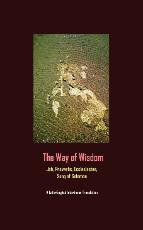www.JohnCunyus.com www.Searchlight-Press.com Welcome to Latin Bible Translations from “The Vulgate.” Biblia Sacra Iuxta Vulgatam Versionem, Fourth Revised Edition, edited by Roger Gryson, © 1994 Deutsche Bibelgesellschaft, Stuttgart, Germany. Used by permission. Proverbs Ecclesiastes (Files updated as of 7/24/2008) The Song of Solomon (Updated 7/29/2008) The Book of Job (Posted 8/10/2008) Please be patient with the files. It will take a moment for them to download, depending on the speed of your internet connection. Leave a Comment |
Words, Images, and Layout ©2008 John G. Cunyus All Rights Reserved John Cunyus is a freelance philosopher working in North Texas. www.johncunyus.com |
| The Vulgate is a version of the Holy Bible, translated from the original languages into Latin by St. Jerome. The Vulgate, or Biblia Sacra Iuxta Vulgatam Versionem, is a carefully- restored version of what was long the official Bible translation, into Latin, of Roman Catholicism. The version I use in my translation came through BibleWorks, an excellent software tool for serious students of scripture. The German Bible Society holds the copyright to this particular version, and has graciously allowed me to use it in these translations. Eusebius Hieronymus, known to history as Saint Jerome, was born 347 C.E., died 419/420 C.E. A“biblical translator and monastic leader, traditionally regarded as the most learned of the Latin Fathers,” Jerome combined a love of scripture with a vast knowledge of Classical learning. His translation grew out of his own longing for holiness and a Christian vocation. His life, mired as it was in controversy and struggle, set the stage for the preservation of scripture through the dark centuries following the collapse of Rome’s Empire in the West. "In 382 [C.E.], Pope Damasus commissioned Jerome, the leading biblical scholar of his day, to produce an acceptable Latin version of the Bible from the various translations then being used. His revised Latin translation of the Gospels appeared about 383. Using the Septuagint Greek version of the Old Testament, he produced new Latin translations of the Psalms (the so-called Gallican Psalter), the Book of Job, and some other books. Later, he decided that the Septuagint was unsatisfactory and began translating the entire Old Testament from the original Hebrew versions, a process that he completed about 405." Rather than translating the Bible into the literary Latin of his day, he translated it into so-called Vulgar Latin, the language of ordinary people, intending that the Bible be read and understood as widely as possible. The translation draws its English name, “The Vulgate,” from this. By the 6th Century after Christ, the Vulgate had become the official translation of the Roman Catholic Church. By means of the Vulgate, scholars transmitted the biblical tradition to the West. In 1455, Johannes Gutenberg printed a version of Jerome’s work, making it “the first complete book extant in the West and the earliest printed from movable type.” Jerome’s translation is remarkable for both its faithfulness to the originals and the simplicity of its presentation. More than a mere translation, The Vulgate is one of the world’s great works of literature and a monument of the world’s religions. I offer this translation, convinced of the surpassing value of the Wisdom tradition in the Bible. May others find the same joy reading it as I have found translating it. Some have asked, Why translate from the Latin, rather than the Hebrew? The Latin language lies at the root of Western learning. The Bible itself existed in the West in Latin, rather than Hebrew, for more than a thousand years. The oldest complete copy of the Bible in Latin, the Codex Amiatinus, created in Northumbria, England, dates to shortly after 700 C.E. By contrast, Codex Aleppo, oldest extant version of the Hebrew Masoretic Text, dates from the 10th Century of the Common Era. In no way do I mean to take away from the surpassing value of the work in its original language. I chose to work in the Latin as a tribute to the monumental impact of The Vulgate in its own right. Whether we study it in Hebrew, Latin, Greek, English, or any other language, it remains God’ s Word to us. |
| Till I come, attend to the public reading of scripture, to preaching, to teaching. (1 Timothy 4:13 ) |

